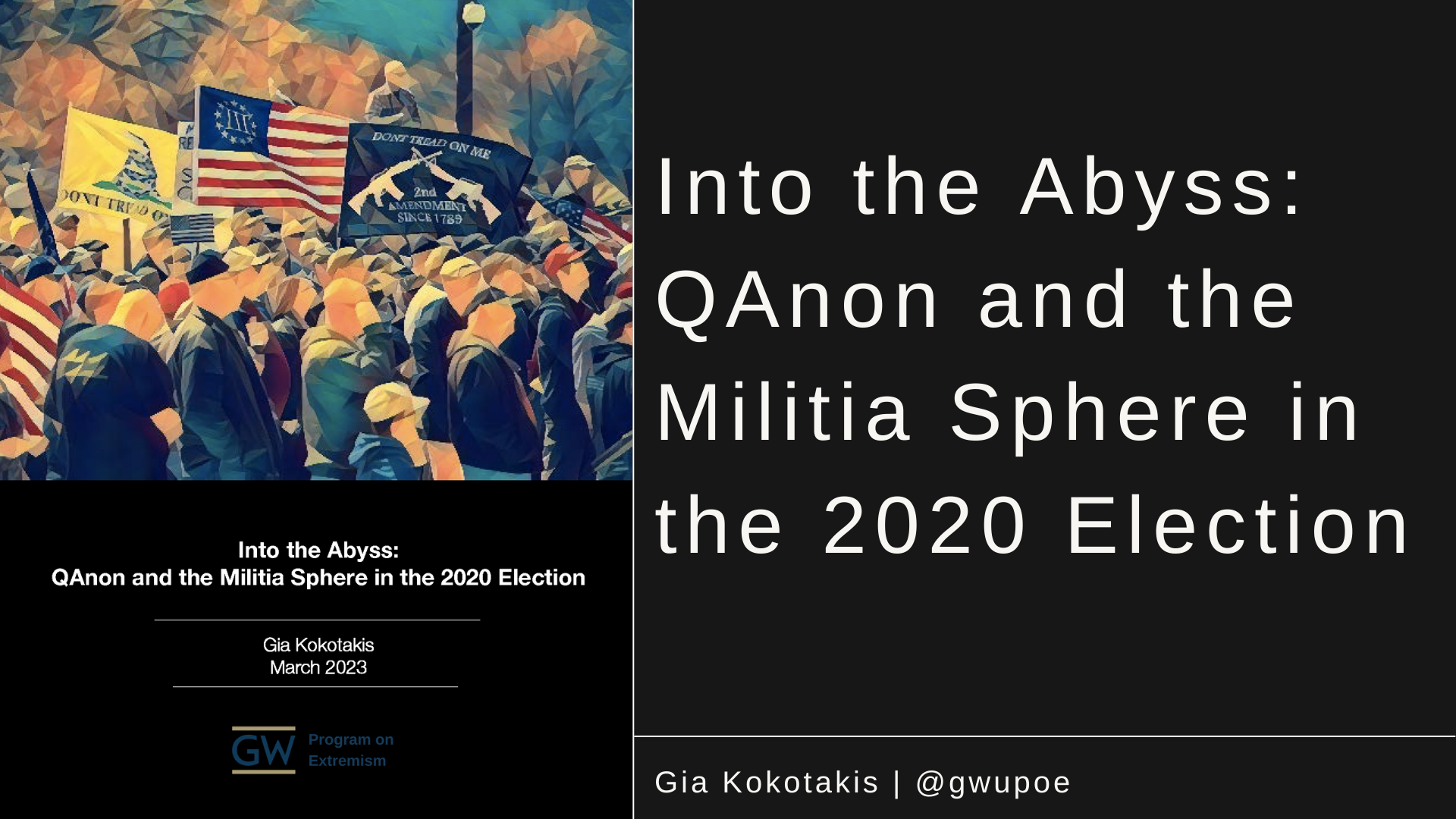The certification of the 2020 election drew a substantial crowd of far-right extremists, with 13% of individuals arrested for crimes committed at the Capitol on January 6th having ties to militia groups. Even before the 2020 election, a 2019 report highlighted the increasing popularity of QAnon conspiracy theories among militia members, a trend which only grew more prevalent as the COVID-19 pandemic brought together a collection of extremist actors. During and following the 2020 election, militia members incorporated QAnon election fraud conspiracies as a central belief, and these conspiracies served as the main mobilizing factor driving militia members to the Capitol on January 6th. This paper explores why QAnon 2020 election conspiracies appealed so strongly to QAnon-adhering militia members. It further examines connections between QAnon 2020 election conspiracies and existing ideological foundations within militias, as well as how the COVID-19 pandemic accelerated and cemented these convergences.
Before, during, and after the 2020 election, online QAnon communities latched onto conspiracies of a “deep state” interfering in the 2020 election to steal Donald Trump’s election win. In this study of QAnon and the militia-sphere, QAnon 2020 election fraud conspiracies are defined as conspiracies emerging from QAnon communities claiming a group of actors within the government interfered in the election. These conspiracies include the beliefs that “middle-of-the-night dumps of fake mail-in ballots [swung] red states to blue” and “Republican votes had been changed or thrown out thanks to foreign plots, complex CIA vote-harvesting programs, and the machinations of a truly evil election administrator–the voting-machine company Dominion.” QAnon’s 2020 election fraud conspiracies took root within far-right communities fiercely loyal to Donald Trump, but other underlying factors within QAnon also appealed more broadly to militias.
The project used the grounded theory-inspired software, “Delve,” to insert transcripts from official court documents from the Department of Justice, video clips published by news outlets, news articles, publicly available social media posts, and public interviews with QAnon-adhering militia members arrested for crimes on January 6th. These quotes were then coded within the transcripts based on their reflection of militia ideology, QAnon language and conspiracies, the 2020 election, and other ideas more broadly found within the far-right. This paper explores three prevailing categories within the data: government corruption, apocalypticism, and defense. Analysis of these categories suggests that QAnon appeals to QAnon-adhering militia members because it aligns with existing foundational militia concepts and conspiracies. Additionally, while the pandemic accelerated QAnon’s appeal to militia members, the 2020 election cemented this trend. This paper assesses that, in the future, QAnon’s growing presence within the militia-sphere will increase convergences between militias and other far-right groups, as well as draw individuals from the mainstream into the militia-sphere.


